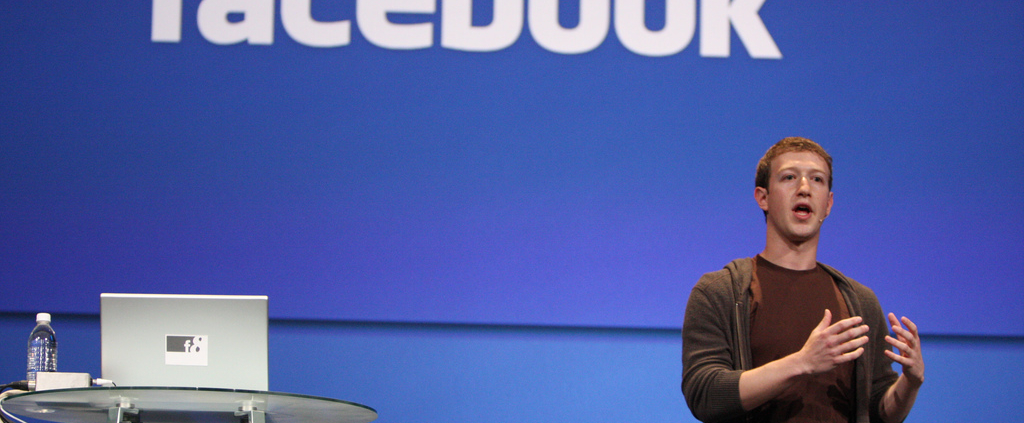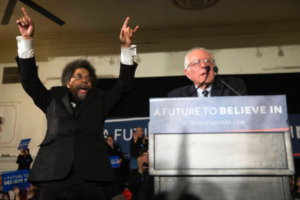“Like” if Open to Regulation, Fake News in Space, and Macadamia to “MAGA”-Damia
Here’s What You Need To Know
The fallout from revelations that Cambridge Analytica used the data of 50 million Facebook users without their permission has led to growing cries to regulate Facebook. Even Facebook CEO Mark Zuckerberg has come to terms with these cries and is preparing to testify before Congress in the coming weeks. COO Sheryl Sandberg has said that the company is “open” to regulation, but what exactly would that regulation look like? Here is our analysis of what steps policymakers are considering to #RegulateFacebook:
- The Political Track: In addition to an investigation by the Federal Trade Commission, 37 state attorneys general have already sent a letter to Facebook demanding answers about its business practices and safeguards to user privacy, and the ire of elected officials has continued below the state government-level. Cook County, Illinois – where Chicago is located – is suing Facebook for “allegedly violating an Illinois fraud law,” asking it be fined $50,000 for each Illinois user whose data was accessed. Yet this is “just the tip of the iceberg,” says Alvaro Bedoya, who runs the Center on Privacy and Technology at Georgetown University Law Center, because these allegations go to the heart of Facebook’s business model and millions of people have been impacted. So, while these state and local cases may garner headlines, present headaches for the company, and serve as a platform for ambitious elected leaders, the ultimate effect of the political track may be to compel and inform the regulatory solution at the federal level.
- Is Facebook Too Big To Fail? Although regulators have been reluctant to intervene in tech because the space is so fluid, Facebook also owns Instagram, Whatsapp, and Messenger – meaning the company controls four of the seven biggest social media platforms in the world. A breakup of Facebook into separate companies could mirror the Department of Justice’s breakup of AT&T in 1982, although the potential consequences of such a breakup are unclear. In addition to the hundreds of millions of users who directly use Facebook, many in favor of regulation argue the platform is “akin to infrastructure” because it “gathers information on visitors to any website with a ‘like’ button,” cementing it as an “unavoidable” force that may require regulators to refocus antitrust laws as they pertain to the digital economy.
- Data Protection As A Right: Another possible approach to regulate Facebook in the U.S. may be to adapt data privacy regulations similar to the European Union’s (EU) General Data Protection Regulation (GDPR). The GDPR gives EU residents the ability to give and withdraw consent for the use of their user data, and its regulations apply to all companies that serve EU residents beginning on May 25. Companies out of compliance could be hit with major fines. Should it prove effective, it may provide the groundwork for similar regulations in the U.S. that give citizens the “right to data protection” and require them to give explicit permission to companies for its use. However, there is speculation that U.S.-based tech companies may adapt GDPR compliance procedures to their worldwide operations anyway, making any regulatory framework put in place more likely to be a codification of tech’s adapted practices than entirely new, burdensome requirements, at least for established firms.
- What Are The Implications For Tech? As with most regulatory frameworks, complicated legal compliance often aims at large, established companies, but hits small, innovative competitors instead. Large scale firms can absorb the cost of new legal and regulatory compliance and have the ability to shape those frameworks to protect their interests and businesses, while complex regulations can hinder startups who do not have the resources to adapt and comply while trying to grow. Thus, regulation to address the current anger at Facebook could inadvertently protect it, and other tech giants like Google, while punishing startups that would contribute to a vibrant, competitive marketplace that benefits consumers. A requirement for tech companies of a certain size to share user data with smaller rivals is one suggestion to address this challenge, but any policy prescriptions should be carefully weighed to determine whether there may be inadvertent consequences.
Regulatory frameworks established to respond to public uproar regarding a particular company’s controversy are inherently not forward-looking, which presents challenges in today’s fluid tech landscape. In advance of Zuckerberg’s testimony on Capitol Hill, and through all of the noise you will hear from now until then, the calls to #RegulateFacebook should instead raise some broader questions that would inform and elevate the public policy debate.
News You Can Use
FROM MACADAMIA TO “MAGA”-DAMIA
Subscribe to Receive Insights
"*" indicates required fields
She’s b-a-a-a-a-c-k. ABC’s primetime revival of “Roseanne” debuted this week, and the main character played by comedian, actress, and Macadamia nut farmer Roseanne Barr is a supporter of Donald Trump. With only 19% of Republicans feeling as though their political views are represented in pop culture according to Morning Consult, and only 10% on TV, Barr hopes the show’s focus on working-class characters who represent a “full cross-section of ideas and beliefs” will help “address the polarization that has split families” in a realistic, nuanced, and unifying way.
Notably, Morning Consult’s data shows that Republicans and Democrats both overwhelmingly agree that TV shows should have more characters that represent working-class Americans. If Barr is successful in achieving her goal, it may not only be more welcome news for Trump voters in small-town America, who have largely gotten an economic jolt under President Trump, but also for working-class Americans of all and no partisan persuasion who feel underrepresented in today’s pop culture.
FAKE NEWS IN SPACE
Dozens of headlines across numerous outlets proclaimed that after a year in space, NASA astronaut Scott Kelly “no longer [had the] same DNA as [his] identical twin [Mark Kelly].” If it seemed too amazing to be true, it was. Scott Kelly flew to the International Space Station in 2015 and lived there for 340 days while his brother Mark stayed on Earth, and the identical twins were examined before, during, and after the mission. The examinations were reported by NASA, including the finding that “some of Scott’s genes changed their expression while he was in space, and 7 percent of those genes didn’t return to their preflight states months after he came back.”
This data was misinterpreted and oversimplified by news organizations to proclaim that 7 percent of his genetic code had changed after being in space. As “humans share more than 99 percent of our DNA” and over 98 percent of it “with chimpanzees, our closest living relatives,” it would have meant that Scott returned from space as an entirely new species, demonstrating the importance of details and accuracy when it comes to distilling information into insights – something the analysts at Delve are well-trained to do.
BLESS FREE TRADE DOWN IN AFRICA
This month in Kigali, Rwanda, 44 African leaders signed an agreement to create the African Continental Free Trade Area (AfCFTA), which if ratified, would make the African continent the world’s largest trading block, creating “a single market of up to 1.2 billion people and a collective GDP of more than $2 trillion.” The AfCFTA is the biggest free trade agreement signed since the establishment of the World Trade Organization, and it would help boost trade between African countries and lead to “substantial opportunities for industrialisation, diversification, and high-skilled employment in Africa” that can help lift people out of poverty.
Yet, eleven countries have not signed the agreement, including the continent’s economic powerhouses of Nigeria and South Africa, highlighting the challenges remaining to making this vision a reality. Additionally, with a lack of policies conducive to leveraging free trade and the diversity of political environments across the continent, it remains to be seen whether the political conditions exist to make the most of this opportunity.
JUST PRUITT?
Environmental Protection Agency (EPA) administrator Scott Pruitt has been facing heavy criticism due to the costs of his travel expenses, which included approximately $105,000 worth of first-class flights in 2017 and an additional $58,000 for charter flights and transport on a military jet. However, you may be surprised to learn that Pruitt has actually spent less on travel expenses than his predecessors during the previous administration, despite having booked first-class seats on the recommendation of his security detail due to numerous threats against him.
That has not stopped Pruitt from vowing to fly coach instead, which will certainly save some taxpayer dollars, but the narrative against his travel expenses – that ignores the fact that his predecessors spent roughly eight times more than him on international travel – makes one wonder whether the story is really about the travel expenses at all, or whether it’s just personal.
CRYPTO GOES PRO
The crackdown of cryptocurrencies foretold in past TL;DRs has come, with the Securities and Exchange Commission (SEC) releasing a statement requiring trading platforms that allow investors to buy and sell “coins and tokens offered and sold in so-called Initial Coin Offerings [ICOs]” to register under existing federal securities laws. This ending of the “Wild West” days of ICOs marks the opening salvo in the federal government’s regulatory framework to “prevent against fraudulent and manipulative trading practices,” meaning the market must adapt to this “’new paradigm’ of ICO regulation.”
Some companies are doing so by developing “fully compliant” platforms that would be certified by the SEC as “alternative trading systems.” This step demonstrates the continuing trend of the professionalization of cryptocurrencies, which may lead to a short term fall in values and trading volumes, but ultimately may help legitimize the industry and bring it into the financial mainstream.



